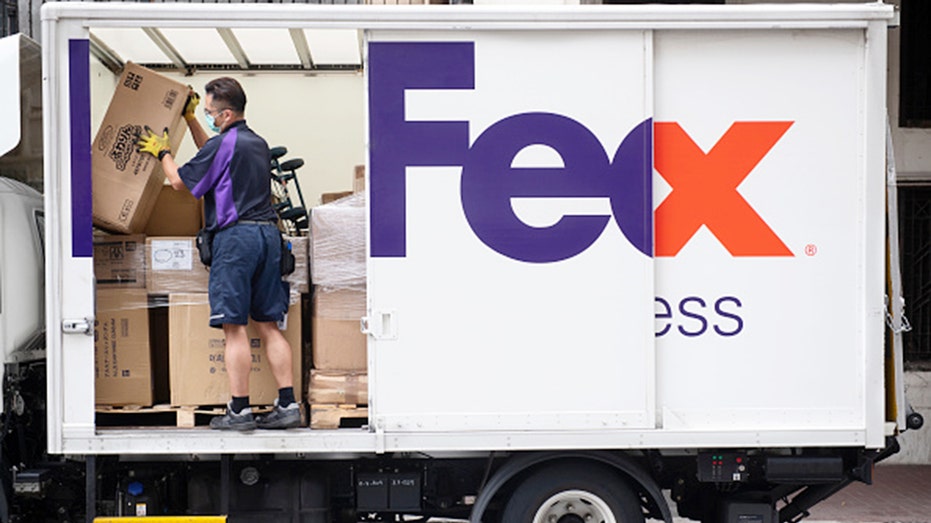FedEx tacks on peak fees during holiday season
FedEx will tack on anywhere between $1 and $5 per express or ground package
FedEx is imposing extra fees onto customers during its holiday peak season as it prepares for a surge in residential deliveries.
The carrier, which has long dominated the U.S. package-delivery business, said customers who meet a certain volume threshold will be charged a Peak Residential Delivery Charge for certain packages shipped anytime between Nov. 2 and Jan.17.
| Ticker | Security | Last | Change | Change % |
|---|---|---|---|---|
| FDX | FEDEX CORP. | 369.23 | +5.27 | +1.45% |
UPS PLANS HEFTY HOLIDAY FEES AMID CORONAVIRUS-RELATED SHIPMENT SURGE
"As the impact of the virus continues to generate a surge in residential deliveries, we are entering this holiday peak season with extremely high demand for capacity and are experiencing increased operating costs across our network," FedEx said. "We anticipate residential volume to continue to surge into the new year."

A FedEx Express courier prepares the numerous packages inside the delivery truck parked on the street in Hong Kong, China on Nov. 5, 2011. (Photo by Budrul Chukrut/SOPA Images/LightRocket via Getty Images)
The U.S. Postal Service is adding similar fees. The post office announced plans earlier this month that it will add extra fees in October ahead of the projected surge in holiday orders from online shoppers.
On top of the holiday rush, carriers have already been deluged with trying to handle the large volume of online orders, which peaked during government-mandated lockdown orders earlier this year.
GET FOX BUSINESS ON THE GO BY CLICKING HERE
While commercial volumes were down "significantly" due to coronavirus-related business closures around the world, the company had "surges in residential deliveries at FedEx Ground and in transpacific and charter flights at FedEx Express," FedEx said in its latest earnings report.
“With safety as the first priority, these men and women provided essential transportation of critical supplies across the globe and delivered peak-level e-commerce volumes in the United States," FedEx Corp. CEO Frederick W. Smith, said.
FedEx shipments rose 20% during the three-month period ending in May, and UPS had a 50% increase during a three-month time frame ending in June, according to Bloomberg.




















